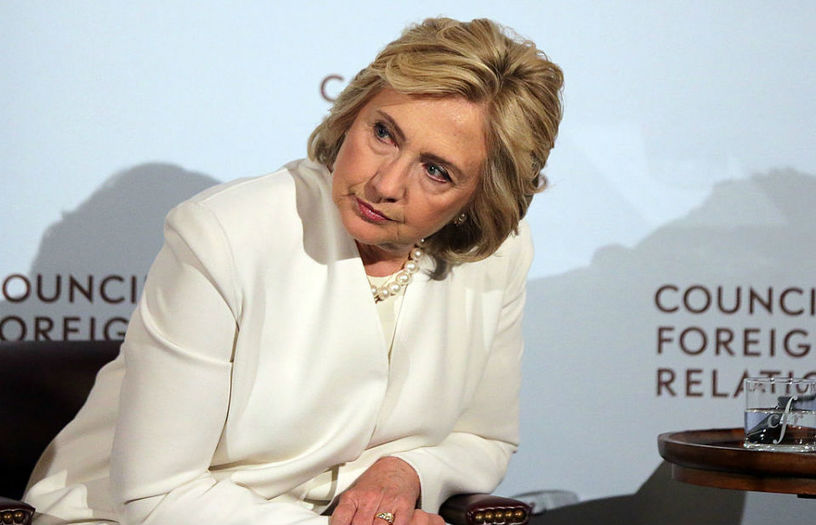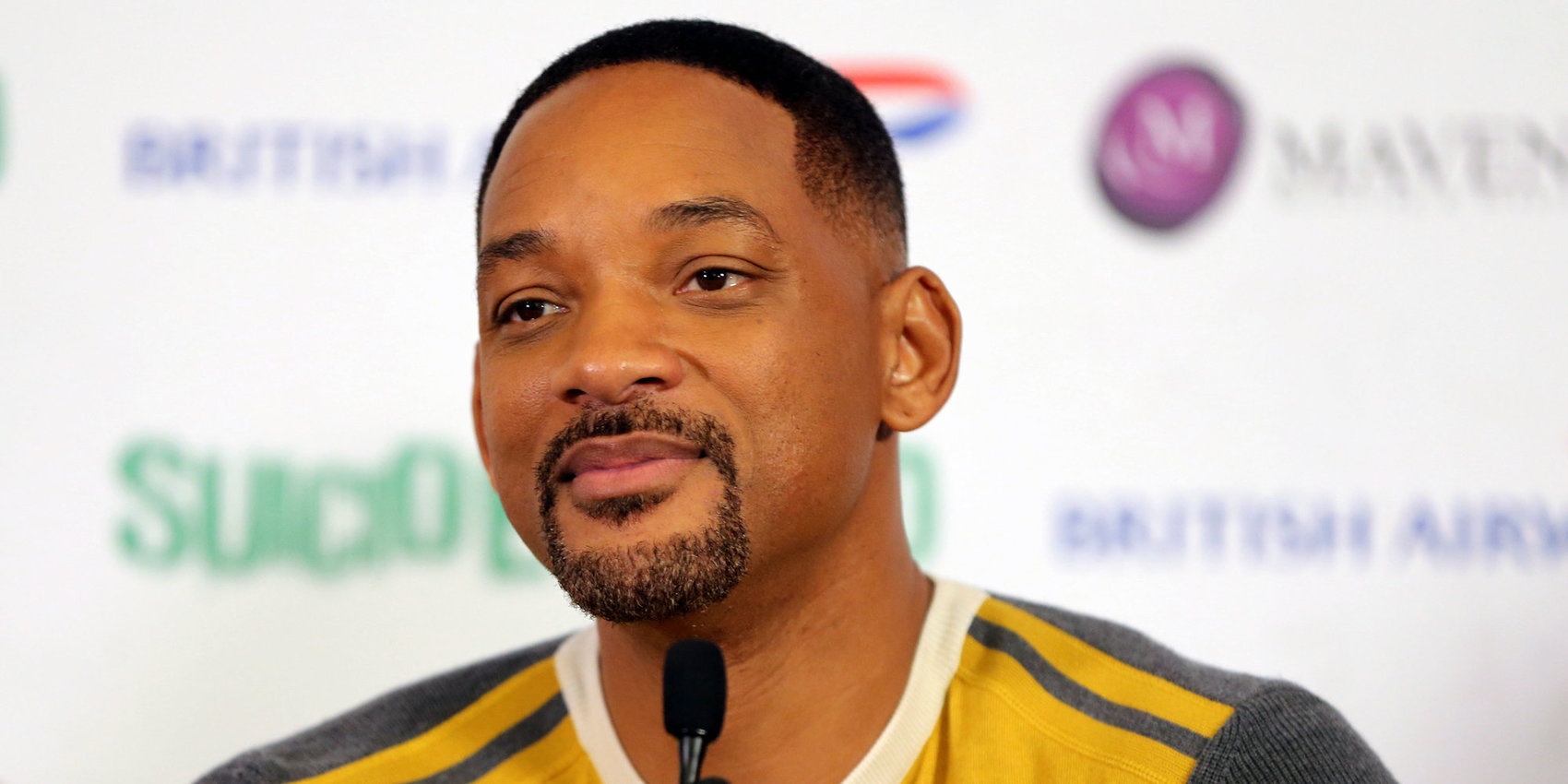
BY KIM GHATTAS
Foreign Policy
There is one big gaping hole in the Democratic Party’s attempt to establish itself as the party of national security. At last month’s convention, one problem was never mentioned, one crisis that was studiously avoided.
Syria represents one of the thorniest problems that the next president will face — and not just the so-called Islamic State, but the larger conflict that has destroyed a country and produced an epic humanitarian tragedy, which is causing ripple effects deep into Europe. Yet aside from a few fleeting references to refugees, the war there was not mentioned once at the Democratic convention.
Admittedly, Syria is not an issue on the mind of many voters. There was little to gain from bringing up such a complex subject, where even the mention of the war against the Islamic State brought chants of “No more war” from Sen. Bernie Sanders’s delegates. But as with the Democratic Party’s crack-up on the Israeli-Palestinian debate, which I wrote about previously, the clash between the foreign-policy instincts of Clinton and Sanders’s supporters is precisely why it is important to pay close attention to the debate about the Syria conflict on the left.
During the drafting sessions of the Democratic platform, Bernie Sanders instructed his representatives on the committee to include an amendment that rejected any military intervention against Syrian President Bashar al-Assad, including the imposition of safe zones or no-fly zones. In the end, Sanders’s representatives, including Arab American Institute President James Zogby and Professor Cornel West, did not ask for the amendment to be included. They came to the conclusion during the drafting session that since the platform language did not specifically call for any U.S. military action, it did not require an explicit rejection of intervention.
The platform language that eventually passed deplored the humanitarian tragedy and urged more U.S. leadership of the international community to provide assistance to civilians, and said Democrats would “root out ISIS and bring together the Syrian opposition, international community, and our regional allies to reach a negotiated political transition that ends Assad’s rule.”
Platforms are not binding policy positions, and this one won’t bind Hillary Clinton if she makes it to the White House. But the episode reveals the gap within the Democratic Party on what role, military or moral, the United States has in ending the Syrian war, and whether the focus should be solely on the Islamic State or also on removing Assad from power.
That debate rages within the Clinton camp itself. By choosing Sen. Tim Kaine as her vice president, Clinton gave a boost to the wing that views inaction as too costly. Kaine has supported a “humanitarian zone” in Syria to protect civilians, saying that the failure to establish one “is going to go down as one of the big mistakes that we’ve made, equivalent to the decision not to engage in humanitarian activity in Rwanda in the 1990s.”
Even if Clinton’s instincts may push her toward greater intervention in Syria, she could face substantial opposition from her own party. Sanders may not be the Democratic Party’s nominee, but his supporters made clear during the convention that they’re not going anywhere.
And those supporters are even more skeptical of military force than their preferred nominee. Sanders could be described as the politician’s version of Noam Chomsky, deeply uncomfortable with the use of American military might, but with a pragmatic streak — though he voted against the Iraq War, he did vote in favor of the interventions in Kosovo and Afghanistan. (His humanism on Palestinian issues, including his breaking of a taboo in presidential politics by forcefully expressing his support for Palestinian rights, was driven partly by his calculation that it was an issue his base was passionate about, and one that he could use to draw a further contrast with Clinton and the Democratic Party.) But his lack of interest and passion in addressing the unspeakable suffering in Syria has been noteworthy, and it has worried activists on the Syrian issue, who see this as part of a larger trend on the left.
Syria cannot be made to fit a clear pattern of injustice, with an occupier and an occupied, like with Israel and the Palestinians, or an oppressed and an oppressor, like with South Africa’s apartheid. Any meaningful U.S. action in Syria would require more military force, a no-no for the left. And rather inconveniently, Assad belongs to the so-called axis of resistance against Israel that includes Hezbollah — and for which the American left has a tendency to voice support with little questioning, because it has the luxury of geographical distance from the consequences of life under its rule.
American political scientist and Israel critic Norman Finkelstein exemplified that attitude when he visited Lebanon in 2008 to show his support for Hezbollah, which he lauded for its courage and discipline in its 2006 war with Israel. A local interviewer pointed out that the widespread support Hezbollah enjoyed among Lebanese after it forced Israel to withdraw from southern Lebanon in 2000 had dissipated in the wake of the costly 2006 war that had wrecked much of the country’s infrastructure — a war which many Lebanese blamed on Hezbollah. “I am not telling you what to do with your lives, and if you’d rather live crawling on your feet, I could respect that,” Finkelstein replied, evoking Spanish Civil War heroine Dolores Ibárruri, who said “It is better to die on your feet than to live on your knees.”
When the interviewer pressed that support for Hezbollah should be a choice left to the Lebanese who have to live with the consequences of the group’s actions, Finkelstein’s answer was again that it was always better to resist and die with honor, adding dismissively that he doesn’t live in Lebanon, so the internal political divisions were irrelevant to him.
Such thinking is prevalent on the left when it comes to Syria, and its adherents are unwilling to vocalize any criticism of Assad’s use of force, lest it indicate support for removing him from power. Mouaz Moustafa, the executive director of the Syrian Emergency Task Force, which supports the opposition, told me Assad’s positions on the Palestinian cause means that “a large segment of the left has completely ignored Syria, and turned a blind eye to what is going on, or even subscribed to conspiracy theories” that the war was manufactured by the West to weaken Assad.
“They believe that U.S. power and military can never be used for good, and somehow they believe Russia provides a balance in the world, but they don’t realize that the Russians are much more brutal,” he said, a pertinent point as President Vladimir Putin’s influence or interference in this election cycle has become a point of debate.
Mustafa said he believed that Sanders’s silence reflected a lack of understanding of both Syria’s geopolitical complexities and the horror of a war where the overwhelming majority of civilian victims have been killed by government forces. “He should go to the Syrian border in Turkey. He should see for himself what is happening and then see if that shifts his position in the right direction,” Mustafa said. “This is our ‘never again’ moment. He needs to clarify his stance, not just keep repeating: We can’t depose dictators, we can’t use force, we can’t have no-fly zones.”
But if the left opposes military action, what about humanitarian action? Even if the United States does not impose a no-fly zone, it could still ramp up funding for overwhelmed and underfunded U.N. agencies and refugee organizations.
This is where Kaine’s views are closer to Clinton’s than even some of her own advisors, and those of President Barack Obama himself. As chairman of the Senate Foreign Relations subcommittee on the Middle East, he traveled to the region often, speaking passionately about the refugee crisis — including in March 2014, when he said that he refused to accept that “there’s nothing more we can do to end the suffering.” He spearheaded an effort to pass a Senate resolution to press the administration to beef up its humanitarian assistance.
There are two key components to Kaine’s thinking on Syria: First, he believes that the United States should push for a humanitarian zone to deliver aid. In November, he said the zone would be “principally a tool for delivering humanitarian aid pursuant to the U.N. Security Council resolution that even Russia voted for. I think, done correctly, it could also accelerate a path to a negotiated end to the Syrian Civil War.” In other words, this creates space to push back against Assad.
Secondly, Kaine believes the challenge of the Islamic State and the issue of Assad are connected, and Washington’s single-minded focus on the jihadi group means its Syria strategy is nonexistent or a mess. “These are two problems that are connected, and you can’t have a strategy that’s just about one,” he told NPR in October.
This dovetails neatly with Clinton’s own views. The former secretary of state has called for safe zones to protect civilians, and the Syria policy section of her website goes even further by stating that combined with no fly zones, “this creates leverage and momentum for a diplomatic solution that removes Assad and brings Syria’s communities together to fight ISIS.”
This belief is also what drives the thinking behind the dissent memo drafted by 51 State Department diplomats criticizing the Obama administration’s Syria policy. The memo called for limited strikes on Assad’s forces, to compel the Syrian regime to “negotiate a political solution in good faith.”
The dissent memo spurred a very public debate between Clinton’s advisors. Former Defense Undersecretary Michèle Flournoy, who is widely assumed to be a favorite to become secretary of defense in a Clinton administration, described Obama’s Syria policy, which relegates Assad to a secondary issue, as an “outright mistake.” Meanwhile, Philip Gordon, another Clinton advisor, has advised that the United States drop its demand for a departure of Assad.
Derek Chollet, who served in the State Department and the National Security Council in the current administration and is closer to Obama in his views on the U.S. role in the Middle East, has dismissed the idea that anything could have been done to produce a better outcome in the region. I know from conversations with Clinton aides that many disagree — and as I wrote in a previous article, they point to Libya, despite the ongoing violence there, as an example of a “less worse” outcome than Syria. From my own conversations with Clinton while she was secretary of state, I also know she feels strongly about preventing the growth of political vacuums that can be filled by America’s adversaries.
Clinton served the president loyally as secretary of state, but as early as February 2012, she told me she worried about Russia, Hezbollah and Iran’s extensive support to Assad. That raised the implicit the question: Where is the United States in all this?
In her book Hard Choices, Clinton describes Syria as a “wicked problem.” It’s also a problem that is only getting harder — and by January 2017 if she’s elected president, her choices may have been reduced further by developments on the ground. Putin’s military involvement in Syria, for instance, could lead to a further strengthening of Assad, thereby making her policy proposal for a safe zone moot.
Clinton will likely want to raise the cost of Russia and Iran’s actions in the region. But whatever she decides to do, she will also need to assess America’s willingness and readiness to stay the course and assist Syria in the postwar period. For that, she will need the public on board — a public that includes anti-war Sanders supporters.
The combination of advisors and aides around Clinton, some of whom espouse her worldview and some whom are closer to Obama’s thinking, are a reflection of Clinton’s preference for surrounding herself with a diversity of opinions. This presages a vigorous debate on Syria, which could bubble to the surface in a rapid review of U.S. policy starting as early as the transition period if Clinton is elected on Nov. 8. It’s still unclear who will come out on top. Knowing Clinton, she’ll prefer it not be Putin.
Source: foreignpolicy.com








